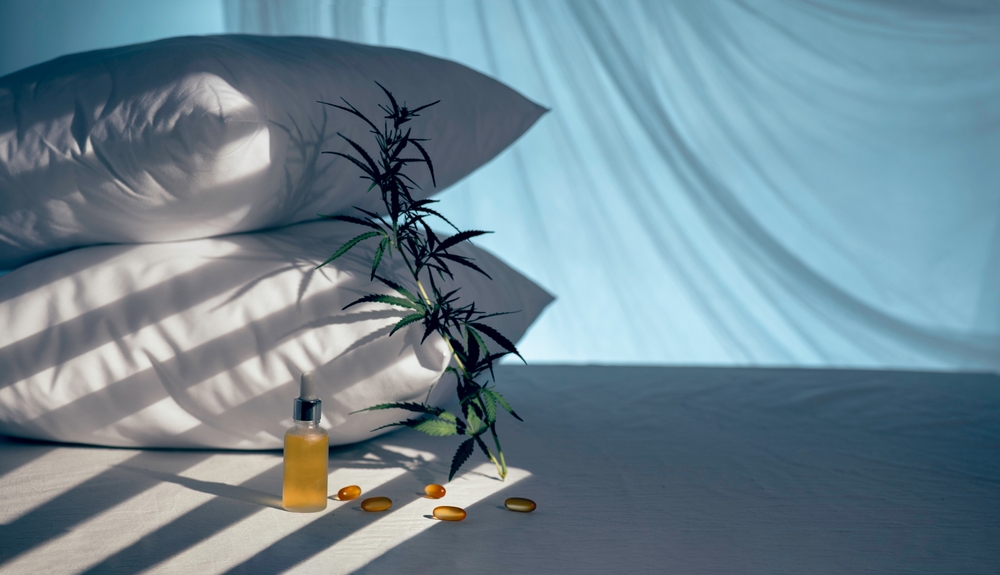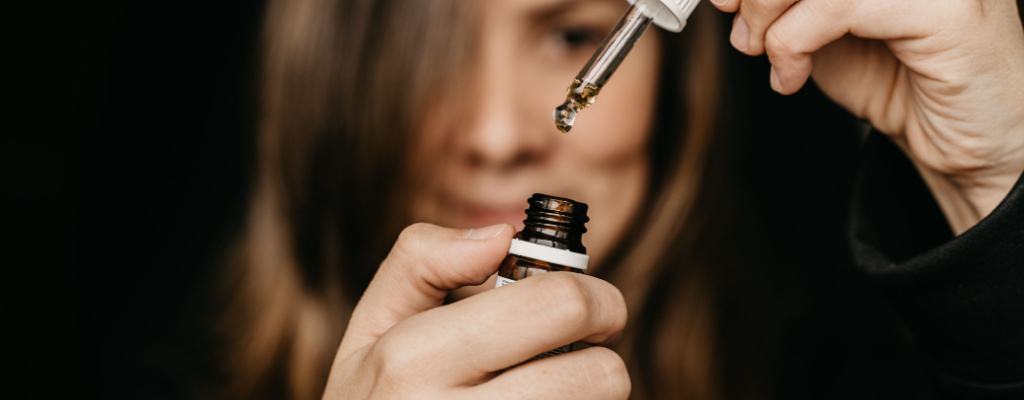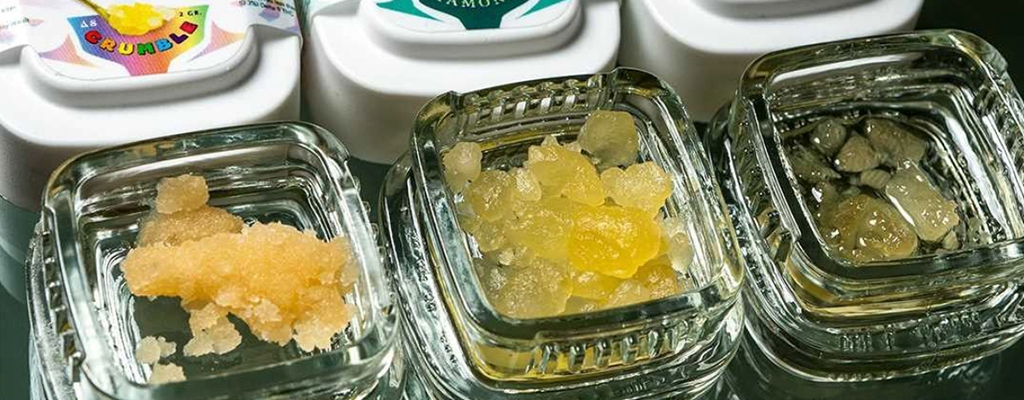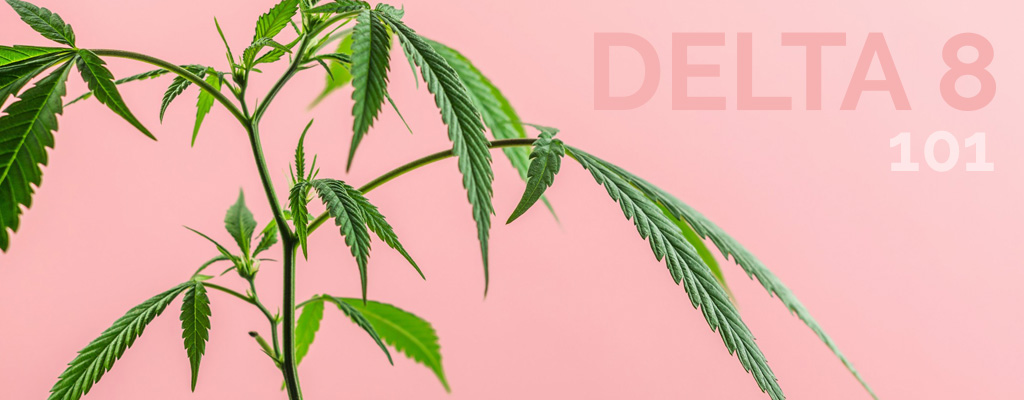Cannabidiol (CBD) is an increasingly popular sleep aid.
Known for its calming and relaxing effects, CBD has also shown early promise in research related to sleep. More specific trials are needed and CBD is not a cure-all when it comes to sleep. However, the calming qualities of CBD appear to help a variety of people get a better night’s rest.
Interested in trying CBD to improve the duration and quality of your sleep? Wondering when to take CBD oil for sleep?
Let’s take a closer look at CBD and how to get the most out of it for better sleep.
Understanding CBD: What it Does, Legality, Common CBD Products and More
CBD is a chemical that naturally occurs in both hemp and cannabis plants. It falls into the category of cannabinoids — chemicals that act on the body’s cannabinoid receptors.
CBD is similar to the 100-plus other cannabinoids in that it has certain effects when consumed. However, the specific effects of CBD are different from those of many other cannabinoids.
Chemicals like Delta 9 THC, HHC, and many others are known for giving users a high. In other words, they alter users’ overall sense of perception and tend to cause an elevated mood. The potency and exact effects differ among these types of cannabinoids. However, this large group of cannabinoids has psychoactive effects in common.
CBD is different from psychoactive cannabinoids. Its major effects appear to be related to calming and relieving pain, among other benefits. An observational study published in the peer-reviewed Journal of Cannabis Research suggested CBD can:
- Help to manage and reduce moderate to severe pain, like chronic pain
- Address symptoms of moderate to severe anxiety
- Mitigate the symptoms of moderate to severe depression
- Support overall well-being among the group of survey participants
Additionally, Harvard Health Publishing points out that CBD may help with poor sleep. Some people find it helps them deal with sleep disorders like insomnia, offering improved sleep.
Side effects of CBD are generally mild, but can still be unpleasant. Examples include drowsiness and changes in appetite.
The most important thing to keep in mind with CBD is its potential to interact with other drugs. If you take prescribed medication, talk to your physician first about using CBD at the same time.
Legality of CBD
CBD is legal on the federal level when derived from hemp plants containing no more than 0.3% Delta 9 THC. This change was a (potentially unintended) effect of the 2018 Farm Bill. That piece of legislation updated federal law to make commercial hemp cultivation legal.
As a result, CBD from hemp plants is legal federally. Some states and municipalities have stricter laws around CBD. However, it’s widely and legally available across the country.

Is CBD Addictive or Habit-Forming?
CBD does not appear to be addictive or habit-forming, according to Medical News Today. This may be due to its lack of psychoactive properties, as well as other factors.
What is CBD Oil and How Do You Use It?
CBD oil is discreet and simple to use. It’s a preparation containing a safe-to-consume carrier oil and CBD extracted from hemp plants. It is similar to, but distinct from, CBD tinctures.
You can either consume CBD oil or use it topically. The overall ease of use CBD oil offers makes it broadly popular.
Using CBD for Better Sleep: Timing, Dose & More
CBD can have a positive effect on sleep. It doesn’t appear to have any seriously negative and common side effects when it comes to sleep, either. Let’s take a closer look at how to use CBD oil to potentially improve sleep.
When is the Best Time to Take CBD Oil for Sleep?
When you consume CBD, you send it through your digestive system. There, it’s processed by your body before you start noticing any effects.
This method of consumption takes longer than some other forms of CBD for the effects to kick in. Most people notice results somewhere between 30-90 minutes. If you’re trying to figure out when to take CBD oil for sleep (and for restless legs and similar conditions that make falling asleep more difficult), the 90-minute mark is a good starting point.
The best advice is to keep track of CBD’s effect on you as you start using it for sleep.
If you find it starts to kick in quickly, try taking it about 30 minutes before bed. You could use it at the start of your nighttime routine. If you find yourself closer to the 90-minute mark, use that as a guide.
What Dosage of CBD Oil is Best for Sleep?
The best CBD oil dosage for sleep depends on a lot of individual factors. Metabolism and body weight and composition are two examples.
Our advice is to start small — use the recommended dose of CBD on the package, or half of it. Looking for stronger effects? Adjust the total amount you take upward, stepping up half a recommended dose each time. With a little trial and error, you can find the level of CBD for sleep that works for your needs.
Charting the effects of CBD on each sleep cycle can help, too. Find yourself tossing and turning even after taking a full recommended dose? Increase your CBD dosage the next night to see if you find better sleep.
Finding High-Quality CBD Oil for Sleep You Can Count On
One of the biggest obstacles with CBD oil for sleep is finding a reliable, consistent, and dependable product. Unfortunately, you can’t trust every single brand and product on the market.
At Delta 8 Resellers, we help all of our customers make informed decisions about the products they buy. We only work with leading CBD industry brands that demonstrate a consistently high level of quality.
Even more importantly, we share the results of independent lab testing for our products. You can confirm for yourself that the product you want to buy contains the same amount of CBD that’s stated on the label.



